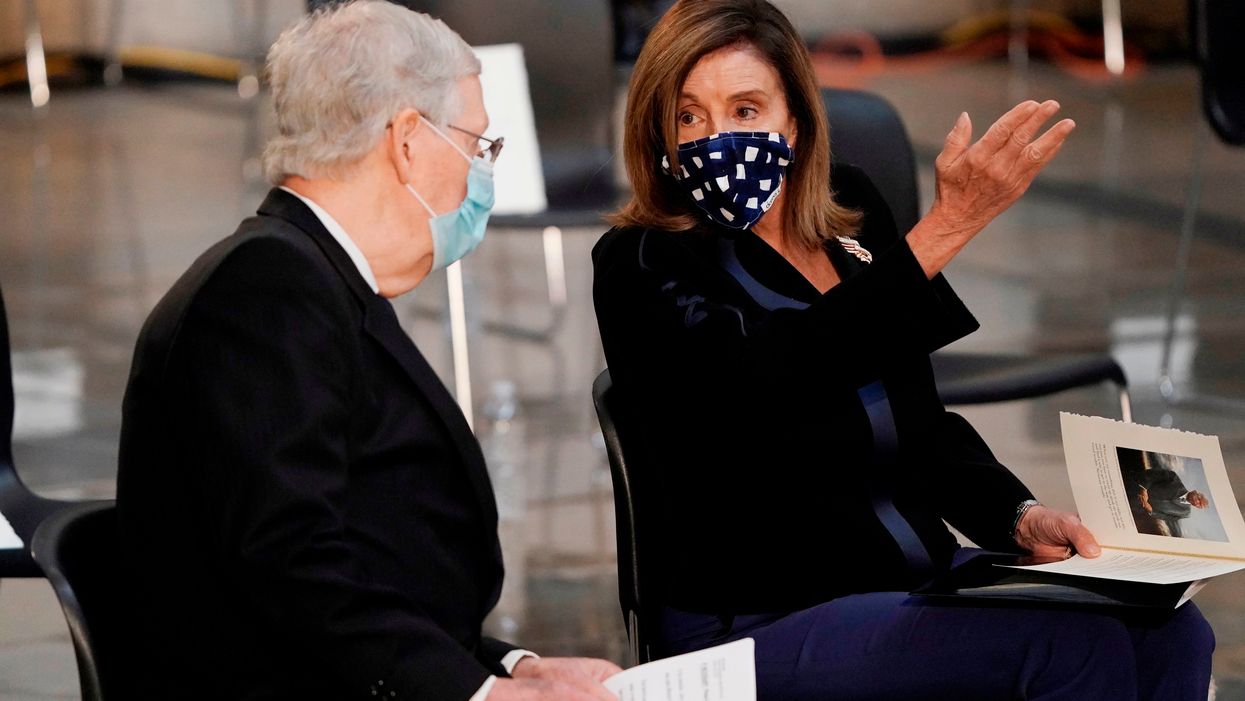There's not a dime for creating a safer and smoother election in the Senate Republican economic stimulus proposal — which has voting rights groups, democracy reform advocates and some election administrators professing outrage and frustration, but not panic just yet.
The roughly $1 trillion package, unveiled Monday and blessed by the Trump administration, is essentially the GOP's opening bid for negotiations with the Democratic House. It has voted for $3 trillion more in coronavirus recovery funds including $3.6 billion for states to make their November contest healthy, comprehensive and reliable despite the pandemic.
Securing significant aid for the states — mainly so they can accommodate a guaranteed surge in voting by mail — has become good-governance lobbyists' singular focus during the public health emergency. They remain cautiously optimistic the ultimate bipartisan deal this summer will include several hundred million beyond the $400 million they secured this spring, banking that the pleadings of election officials in many red states will outweigh President Trump's unfounded allegations about the fraudulent evils of mail voting.
Advocates have taken heart that some senior Republican senators, most notably Missouri's Roy Blunt, have publicly endorsed additional funding.
On the other hand, there is intensifying worry that — even if the states get more cash for printing, sending and then counting absentee ballots, plus hiring election workers and sanitizing polling places — the mail-in vote could still be chaotic and wholly unreliable if the Postal Service is unable to deliver tens of millions of envelopes on time.
"That would force people to risk their health to vote and virtually guarantees election chaos," said Robert Weissman, president of the liberal advocacy group Public Citizen.
The Senate GOP package is essentially silent on money to rescue the Postal Service from a financial crisis this fall, aid Trump also opposes.
On Tuesday, as details of the Senate GOP plan were being fully digested, advocates for election aid who position themselves as centrist and bipartisan remained essentially silent. That's a potentially strong signal these groups have confidence they'll get some of what they're after in the end, but only if they keep their rhetorical powder dry and don't do anything to antagonize Republican negotiators, particularly Senate Majority Leader Mitch McConnell.
Groups on the left, in contrast, sounded emphatic alarms and put the blame squarely on McConnell, who will have the power to sign off on every line item in the package
The country "is running out of time to protect our health and constitutional right to vote, and the Republican-controlled Senate is playing partisan politics with our democracy," said Jana Morgan of the Declaration for American Democracy, a coalition of 160 labor, civil rights, environmental, women's rights and good government groups. "McConnell and his Republican colleagues' blatant disregard for the safety of voters is appalling."
"Public health experts have made clear that the threat of coronavirus isn't going away anytime soon and it's unbelievable that the bill Mitch McConnell released today completely ignores the crisis we'll face if states don't have the resources they need to ensure every eligible voter has options to be able to safely cast a ballot this November," added Tiffany Muller of the progressive group Let America Vote.
It remains unclear how soon negotiations will produce progress on the bill, which will be the last major legislative response before the election to the historic economic and public health challenges spawned by Covid-19.
The Senate GOP plan, assembled after a week of internal party discord at the Capitol and mixed signals from the White House, is vastly different from the much more generous measure the House passed in May — before the virus started its summer surge and the economy started swooning again.
Tens of millions of Americans are on course to lose their enhanced jobless benefits this week, and the centerpiece of the Senate bill would slash by two-thirds what has been since April a $600-a-week unemployment payment. The House bill would keep the current benefit going until January.
The Senate bill also would provide tax cuts and liability protections for businesses, schools and hospitals, while the House bill would make the government bolster virus safety measures in the workplace.
House Democrats would allocate $1 trillion in general relief for cash-strapped state and local governments. Senate Republicans left them out of their bill altogether.
The main point of agreement is that both bills would provide a second round of $1,200 direct payments to most American families, although the two sides differ on some details.




















